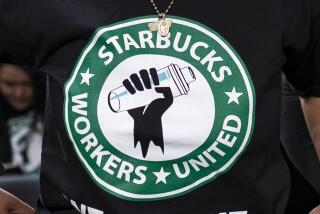Probe of Leading Accounting Firm Finds Ethical Lapses
- Share via
WASHINGTON — An investigation of the giant accounting firm PricewaterhouseCoopers found thousands of cases in which the firm’s partners and senior employees had financial interests in companies the firm was auditing, the Securities and Exchange Commission said Thursday.
Such conflicts violate SEC and professional rules designed to make sure that accountants’ interests are independent of those of the companies whose books they audit. These audits are supposed to provide the investing public with an accurate picture of a company’s financial health.
The SEC’s investigation is continuing, and officials there said the Public Oversight Board, an industry-funded group that oversees the practice of accounting, has agreed to sponsor similar reviews of other firms.
The inquiry, ordered by the SEC last year in settling a complaint against the firm’s Tampa, Fla., office, did not try to determine whether these violations influenced the firm’s audit reports, and the investigators said they came across no evidence that they did. The report concludes, however, that there was “widespread . . . noncompliance” with the rules “that reflected serious structural and cultural problems” at PricewaterhouseCoopers.
Firm Chairman Nicholas G. Moore and Chief Executive James J. Schiro, in a letter to partners on Wednesday, call the investigation’s findings “embarrassing to our firm and to all of us as partners.” But “these infractions of independence rules, however unacceptable, did not in any way impair the professional objectivity and integrity of our audits,” they said.
Moore and Schiro noted that most of the violations concerned accountants who were not actually doing work for the client involved.
The more serious violations involved accountants who owned stock in companies audited by the firm, took out loans from clients, had spouses or other relatives who worked for a client, and managed family trusts that had investments in a client.
Many of the other violations were minor or technical, such as owning shares of a mutual fund audited by the firm, but the sheer number of violations suggests the firm paid only casual attention to the requirements of the profession.
Government officials, who have heard accountants insist that such violations are unusual or even rare, said they now see that the problems are much more widespread than they had thought.
Former U.S. Comptroller General Charles Bowsher, who chairs the oversight board, said the group will soon begin investigations of the other four largest firms--Arthur Andersen, Deloitte & Touche, KPMG and Ernst & Young. As soon as those reviews are complete, it said, it will turn its attention to the medium-sized firms.
Regulators have been concerned about ethical lapses by accountants who are under growing pressures to generate revenue for their firms. The investigation of PricewaterhouseCoopers began last year after regulators found that accountants in the Tampa office of Coopers & Lybrand had owned securities of 44 of Coopers’ audit clients. Coopers & Lybrand merged with Price Waterhouse in 1998. The firm settled with the SEC at the time, calling the Tampa violations “aberrant.” However, according to the report, “that assessment proved to be incorrect.”
The inquiry, led by Jess Fardella of the New York law firm of Lankler Siffert & Wohl, found more than 8,000 independence violations over a two-year period, involving 1,885 PricewaterhouseCoopers employees and partners. It is worth noting that violations were found involving 1,301--or 48%--of the firm’s 2,698 partners.
Peter Frank, the firm’s global managing partner for risk management, said the firm has determined that none of the violations involved illegality, and that none compromised the integrity of an audit. But a small number of cases involved things that were beyond inadvertence or technicality, and during the inquiry five partners and a similar number of other professionals were “asked to leave.”
Kenton Sicchitano, global managing partner for regulation and independence, said the firm has conducted a “top-to-bottom” overhaul of its independence procedures and systems, including installation of an automated checking system.
“No system is foolproof,” he said, but “I think we’ve put into place the tools to help people comply.”
More to Read
Inside the business of entertainment
The Wide Shot brings you news, analysis and insights on everything from streaming wars to production — and what it all means for the future.
You may occasionally receive promotional content from the Los Angeles Times.









